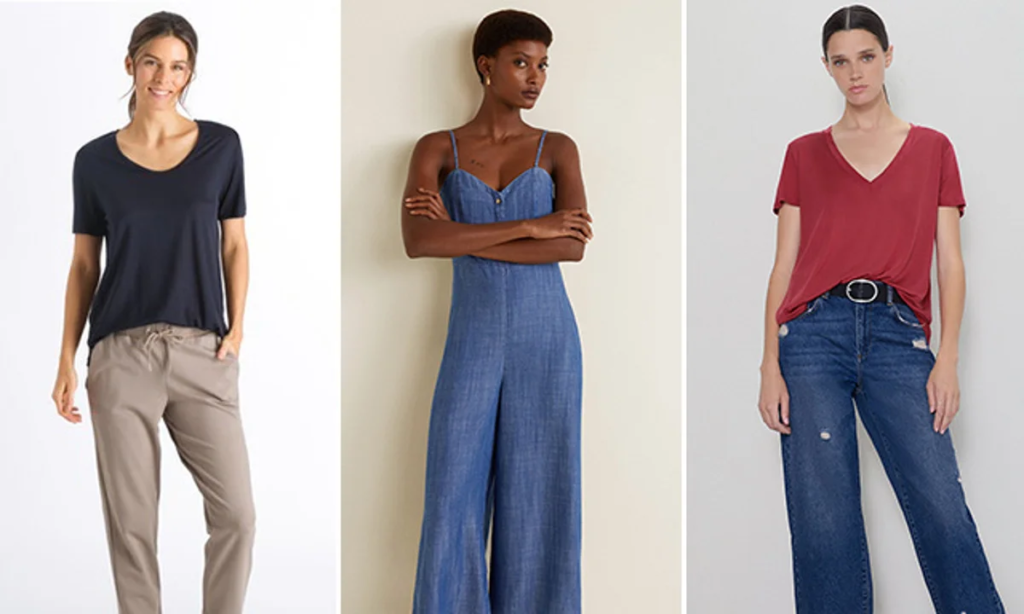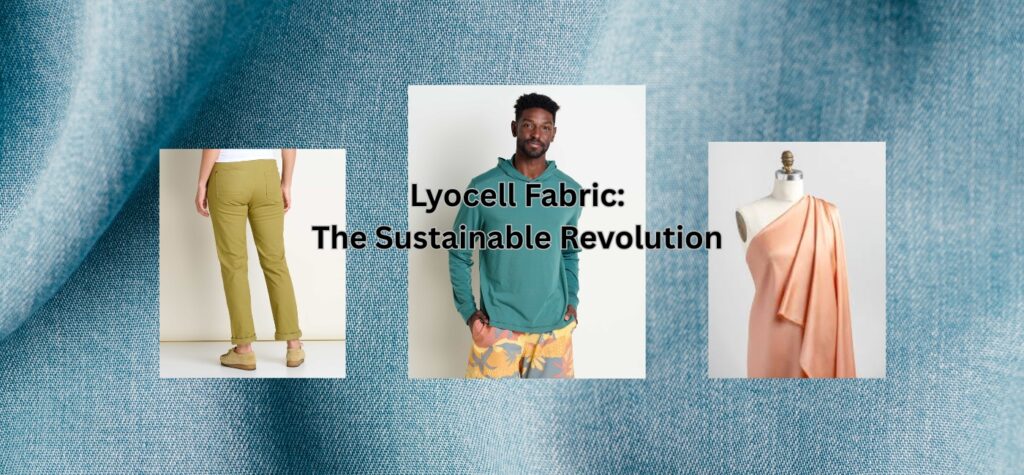As fashion brands seek alternatives to conventional materials, Lyocell has emerged as a game-changer in the world of sustainable textiles. This semi-synthetic fabric, made from regenerated wood pulp, combines the best of natural and synthetic fibers while addressing critical environmental concerns. But what sets Lyocell apart from its cousins, viscose and modal? And why should your brand consider it for your next collection?

What Makes Lyocell Unique?
Lyocell belongs to the regenerated cellulose fiber family, which includes viscose and modal. However, its production process—a closed-loop system—recycles over 99% of water and solvents, minimizing waste and pollution. This makes Lyocell one of the most sustainable fabrics available today.
Key Advantages of Lyocell
- Eco-Friendly Production
Unlike traditional viscose, Lyocell’s closed-loop process avoids releasing harmful chemicals into the environment. The wood pulp is sourced from sustainably managed forests (e.g., eucalyptus or bamboo), requiring minimal water and no pesticides. - Superior Performance
- Softness: smoother and more luxurious than cotton.
- Breathability: 50% more absorbent than cotton, making it ideal for activewear and base layers.
- Durability: stronger than cotton and viscose, even when wet.
- Drape: perfect for flowing dresses and structured pants.
- Hypoallergenic & Biodegradable
Lyocell is gentle on sensitive skin and fully biodegradable, aligning with circular fashion principles.

Lyocell vs. Viscose vs. Modal
| Feature | Lyocell | Viscose | Modal |
|---|---|---|---|
| Production | Closed-loop, eco-friendly | Chemical-intensive | Semi-closed, moderate impact |
| Softness | Silky, smooth | Soft but less durable | Very soft |
| Durability | High (even wet) | Low (weak when wet) | Moderate |
| Sustainability | ★★★★★ | ★★☆☆☆ | ★★★☆☆ |
| Cost | Premium | Affordable | Mid-range |
Is Lyocell the Same as Tencel?
No—Tencel is the brand name for Lyocell (and modal) fibers produced by Lenzing AG. All Tencel is Lyocell, but not all Lyocell is Tencel. The Tencel® label guarantees Lenzing’s stringent sustainability standards and closed-loop production.
Applications for Fashion Brands
- Apparel: Dresses, shirts, denim, and activewear.
- Home Textiles: Bedding, towels, and upholstery.
- Luxury Goods: High-end collections prioritizing sustainability.
Challenges to Consider
- Cost: Lyocell is more expensive than viscose or cotton.
- Care: Requires gentle washing; avoid tumble drying.
Why Choose Lyocell?
Lyocell offers a rare balance of sustainability, performance, and luxury. For brands committed to reducing their environmental footprint without compromising quality, it’s a future-proof investment.
Explore More Fabric Guides:
Want to dive deeper into sustainable materials? Learn about the silky versatility of Modal Fabric or discover why Tencel Fabric is revolutionizing luxury fashion. Check out our full series on innovative textiles to make informed choices for your brand!
Read: What is Modal Fabric? Pros, Cons & Sustainable Alternatives
Read: Beyond Cotton: Why Luxury Brands Are Switching to Tencel
Explore All Fabric Guides

